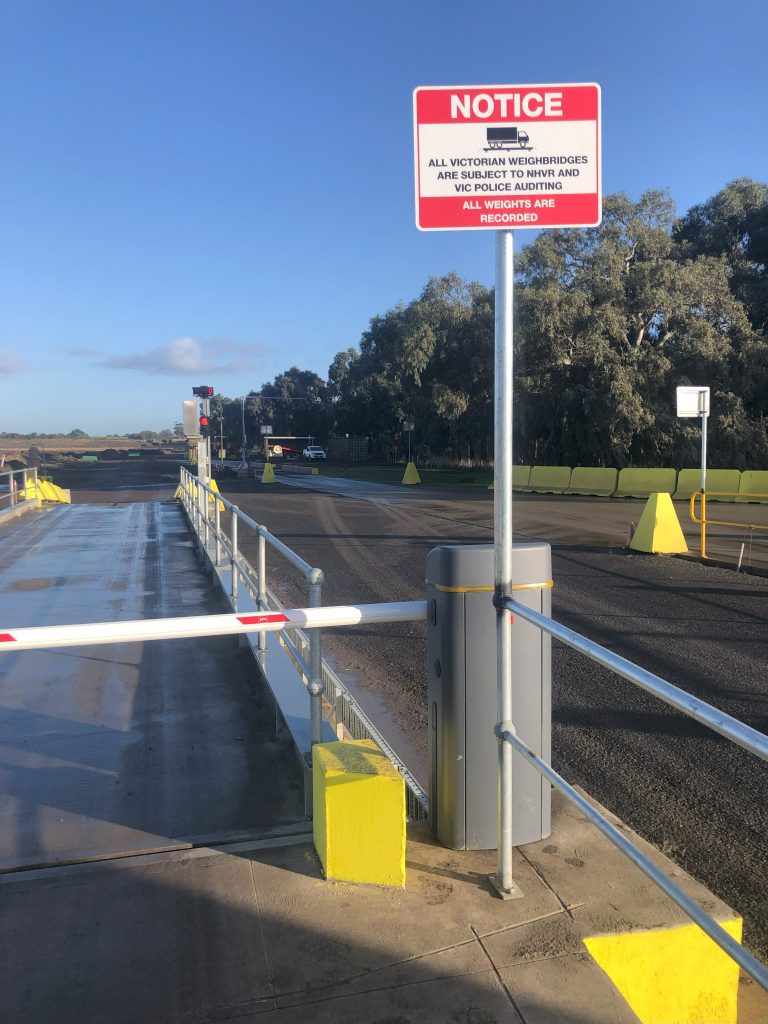NHVR Chain of Responsibility
DR ELIZABETH GIBSON, General Manager of the CMPA.

The following sign may address concerns for inward rock to quarries. As the Notice below says all Victorian Weighbridges are subject to National Heavy Vehicle Regulator (NHVR) and Victoria Police auditing especially after an incident. The quarry in question had the signs displayed at all their weighbridges due to concerns held that NHVR chain of responsibility legislation was not being considered seriously by inward rock freight carriers.
The Chain of Responsibility (CoR) law ensures everyone who works with heavy vehicles – from the business that employs a driver to the place where goods are delivered – is accountable for safety.
You are a party in the CoR when you perform any of the following 10 functions:
- employ a heavy vehicle driver (employer)
- engage someone to drive a heavy vehicle under a contract for services (prime contractor)
- direct the control and use of a heavy vehicle (operator)
- schedule the transport of goods and passengers in a heavy vehicle, or schedule a driver’s work and rest hours (scheduler)
- consign goods for transport by a heavy vehicle (consignor)
- receive goods delivered by a heavy vehicle (consignee)
- pack or assemble goods for transport in a heavy vehicle (packer)
- manage premises where five or more heavy vehicles are loaded or unloaded each day (loading manager)
- load a heavy vehicle (loader)
- unload a heavy vehicle (unloader)
You are a CoR party because of a function you perform, not because of a title or job description, or the words of a contract. If you engage in any of the above activities, you or your business are accountable for heavy vehicle safety according to your primary duty.
Both employers and employees have duties, but because employers generally have more control over work practices, training and resources, they are expected to take the lead in managing safety
Employer and employee responsibilities
Investigation of a breach of the primary duty generally starts with the business and its management. Individual employees who fail to follow procedures, or who exceed their authority, may also be investigated. Decisions about who should be charged
– business, individual employee, or both – are made at the discretion of prosecutors and depend on factual circumstances, the law, rules of evidence, and the NHVR’s Prosecutions Policy.
Prosecutors also consider whether to charge the executive of a business if they have failed to exercise due diligence.
More information can be found at https://www.nhvr.gov.au/safety-accreditation-compliance/chain-of-responsibility/primary-duty.









You must be logged in to post a comment Login